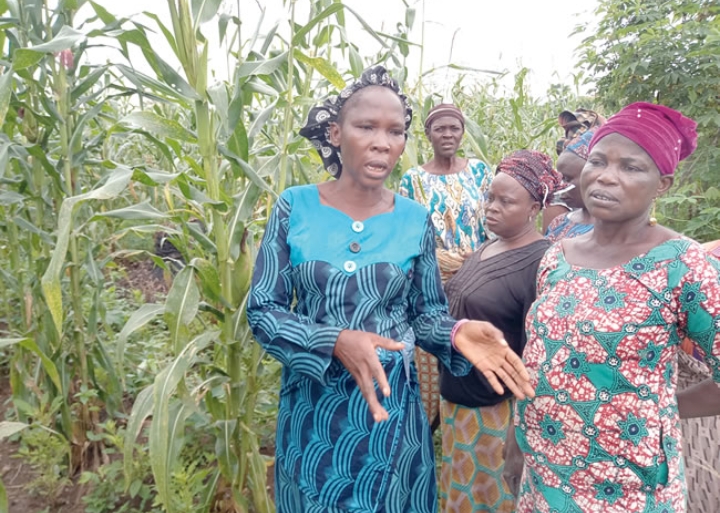As the world commemorates World Food Day 2025, farmers in Ondo State have called for greater collaboration and stronger government commitment to sustainable agriculture, lamenting poor access to credit facilities, inadequate mechanization, and land scarcity as persistent challenges to food production.
This year’s theme, “Hand in Hand for Better Foods and a Better Future,” emphasizes joint action among governments, private sectors, and communities to ensure sustainable, inclusive food systems.
World Food Day, created by the Food and Agriculture Organisation (FAO) in 1979 and celebrated every October 16, marks the FAO’s founding in 1945 and serves as a rallying call for global cooperation against hunger. The 2025 edition coincides with the FAO’s 80th anniversary.
In Ondo State—one of Nigeria’s leading cocoa and oil palm producers—many farmers say they are yet to feel the impact of government agricultural interventions.
A smallholder farmer, Mrs. Trust Haruna told Roving Reporters that many farmers still struggle to stay afloat despite their central role in feeding the population.
“We small-scale farmers work across many areas—livestock, crops, everything. Food is life, as water is life,” she said. “I grow what I eat and sell the rest to survive. The government has tried with some trainings, but we need more access to funds, fertilizers, and modern equipment to boost productivity.”
The Ondo State Coordinator of the Small-Scale Women Farmers Organisation in Nigeria (SWOFON), Mrs. Oyediji Grace Bukola, painted a vivid picture of the hardships faced by women farmers in rural communities.
“Most of our members are into food crop production, but we can’t access land easily because many farmlands have been taken over by cash crop investors,” she explained. “Even when banks say we should come for loans, they ask for collateral we don’t have. Some of us farm on borrowed land; when the owners want it back, we lose everything.”
She further decried the state of rural infrastructure.
“We face bad roads that make it difficult to move our produce to markets. A journey that should take 30 minutes can take two hours because the roads are terrible,” she said. “We also lack processing machines. Oranges, tomatoes, cassava—they rot on the farm because we can’t preserve them. Government should help us with simple machines for processing and packaging.”
On the issue of farm input distribution, she alleged that genuine farmers are often sidelined.
“Whenever there’s talk of fertilizer or seedlings, it becomes political. The people who truly farm don’t get the support, but those with political connections do,” she lamented. “We are not asking for too much—just fairness, access to land, credit, and empowerment for rural women. If you support the grassroots, you will feed the nation.”
The Programme Officer of the Justice, Development and Peace Commission (JDPC) in Ondo State, Mr. Oluwatobi Olayemi, said agriculture remains the most reliable tool for economic growth, job creation, and poverty reduction—but poor coordination and data management continue to weaken its potential.
“Nigeria—and Ondo State in particular—has the potential to feed itself, but we need better data, stronger policies, and consistent implementation,” he said. “We can’t plan for farmers without including them in decision-making. Many policies are designed at the top but don’t reflect realities in the villages.”
He called for a review of the state’s agricultural framework to prioritize inclusiveness, technology, and gender equity.
“We must make agriculture attractive to young people and ensure women are supported with land rights, irrigation, and access to credit,” Olayemi noted. “There’s also a need to invest in climate-smart agriculture, because unpredictable weather is already affecting harvests.”
The JDPC officer also reminded that World Food Day was established by the FAO in 1979 to commemorate the founding of the organization in 1945, stressing that the day is not just ceremonial but a call to action.
“World Food Day is a reminder that food is a basic human right,” he said. “This year’s theme is timely. We need to work hand in hand—government, civil society, farmers, and private sector—to achieve better food and a better future. No single sector can do it alone.”
As the world reflects on this year’s theme, Ondo farmers are urging genuine investment in smallholder agriculture, fair access to credit, and practical infrastructure development to turn policy promises into real progress.
“We feed the nation,” Mrs. Oyediji said softly, “but we can barely feed ourselves. That must change.”

